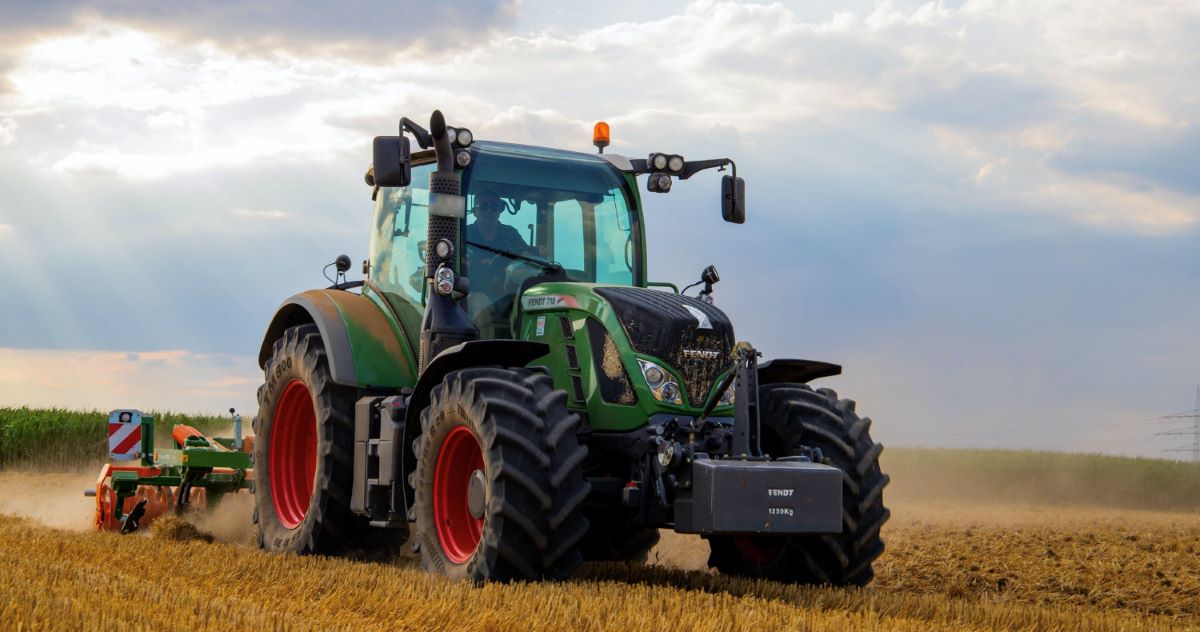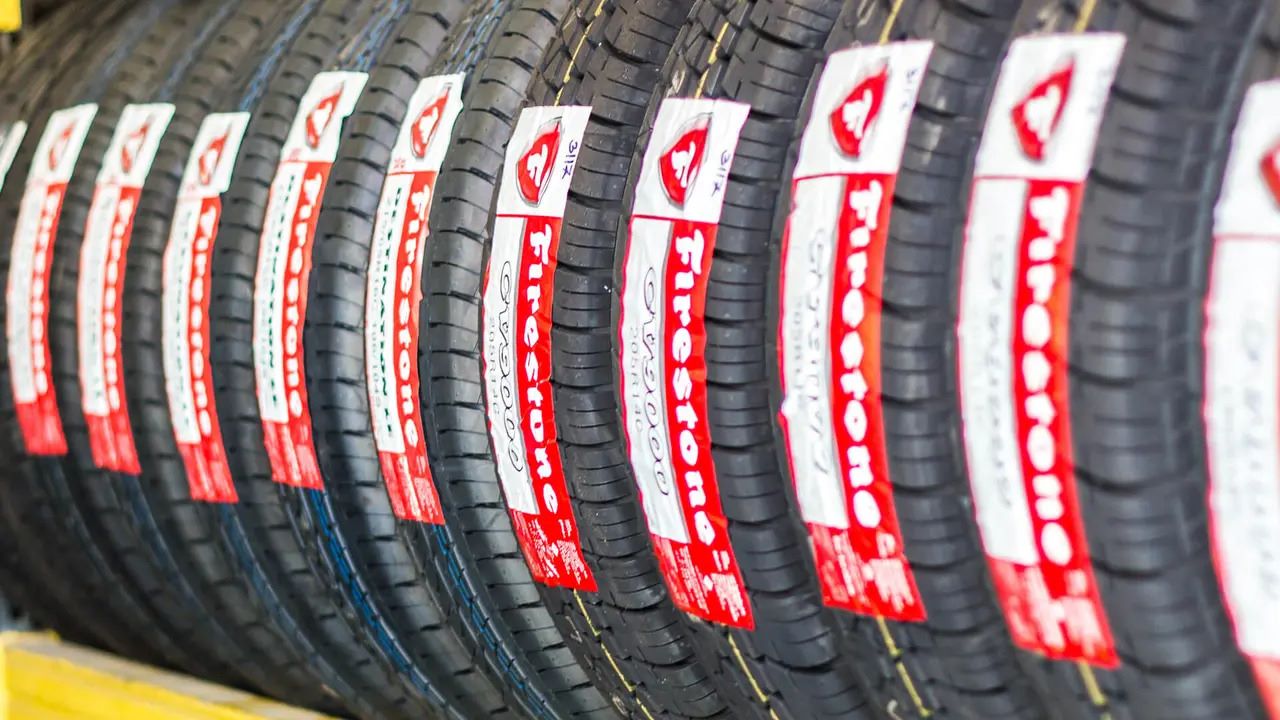Home>Finance>What Credit Score Is Needed To Finance A Tractor


Finance
What Credit Score Is Needed To Finance A Tractor
Published: October 22, 2023
Looking to finance a tractor? Learn what credit score is needed to secure tractor financing and get the equipment you need for your agricultural needs.
(Many of the links in this article redirect to a specific reviewed product. Your purchase of these products through affiliate links helps to generate commission for LiveWell, at no extra cost. Learn more)
Table of Contents
Introduction
Financing a tractor is a common practice for individuals and businesses in the agricultural industry. However, securing financing for such expensive equipment often requires a good credit score. Your credit score serves as a measure of your creditworthiness to lenders and is used to determine the terms and conditions of your loan.
In this article, we will explore the credit score requirements for financing a tractor and discuss the factors that impact these requirements. We will also provide tips on how you can improve your credit score to increase your chances of obtaining favorable financing options. Additionally, we will discuss alternative financing options available for those with lower credit scores.
Understanding the credit score requirements for tractor financing is crucial as it allows you to assess your eligibility and plan accordingly. Whether you are an individual farmer looking to upgrade your equipment or a business owner expanding your agricultural operations, having a clear understanding of the credit score requirements will help you navigate the financing process more effectively.
So, let’s delve into the world of credit scores and how they impact your ability to finance a tractor!
Understanding Credit Scores
Before we explore the credit score requirements for financing a tractor, it’s essential to understand what a credit score is and how it is calculated. A credit score is a three-digit number that is generated by credit bureaus, such as Experian, Equifax, and TransUnion, based on your credit history and financial behavior.
The most common credit scoring model is the FICO score, which ranges from 300 to 850. The higher your credit score, the better your creditworthiness is considered. Lenders use credit scores to assess the level of risk associated with lending to you. A higher credit score indicates a lower level of risk, making you a more desirable borrower.
Several factors contribute to the calculation of your credit score. These factors include:
- Payment History: This accounts for about 35% of your credit score and reflects your track record of making on-time payments to creditors.
- Credit Utilization: This makes up approximately 30% of your credit score and refers to the percentage of your credit limit that you are currently using.
- Length of Credit History: This factor constitutes about 15% of your credit score and considers the length of time you have held credit accounts.
- Credit Mix: This accounts for around 10% of your credit score and takes into account the various types of credit accounts you have, such as credit cards, loans, and mortgages.
- New Credit Inquiries: This factor makes up about 10% of your credit score and considers the number of recent credit inquiries and new accounts you have opened.
By understanding these factors, you can gain insights into what actions can positively or negatively impact your credit score. It’s crucial to maintain a positive credit history by making timely payments, keeping your credit utilization low, and managing your credit accounts responsibly.
Now that we have a better understanding of credit scores, let’s explore why credit scores are important when it comes to financing a tractor.
Why Credit Scores Matter for Financing a Tractor
Credit scores play a crucial role in determining your eligibility for financing a tractor. Lenders use credit scores to evaluate the level of risk associated with lending you money. A higher credit score demonstrates a higher level of trustworthiness and financial responsibility, making you a more desirable borrower.
When it comes to financing a tractor, lenders rely on credit scores to assess your ability to repay the loan. Since tractors are expensive pieces of equipment, lenders want to ensure that they can trust borrowers to make their monthly payments on time.
A higher credit score can provide several advantages when it comes to tractor financing:
- Favorable Loan Terms: If you have a good credit score, lenders are more likely to offer you more favorable loan terms. This could include lower interest rates, longer repayment periods, and smaller down payment requirements.
- Higher Loan Amount: With a higher credit score, you may have access to a larger loan amount, allowing you to finance a tractor of higher value.
- More Financing Options: Lenders are more likely to approve your loan application if you have a good credit score. This opens up a wider range of financing options, giving you the freedom to choose the lender that offers the best terms and conditions.
- Streamlined Approval Process: Having a good credit score can speed up the loan approval process. Lenders may be more willing to process your application quickly, allowing you to acquire the tractor without unnecessary delays.
On the other hand, if you have a low credit score, you may face challenges when trying to secure financing for a tractor. Lenders may perceive you as a higher-risk borrower and may require higher interest rates, larger down payments, or stricter repayment terms. In some cases, they may even deny your loan application altogether.
Understanding the importance of credit scores when it comes to financing a tractor can help you strive for a higher credit score and improve your chances of obtaining favorable financing options. In the next section, we will discuss the minimum credit score requirements for tractor financing.
Minimum Credit Score Requirements for Tractor Financing
The minimum credit score requirements for tractor financing can vary depending on the lender and the specific financing program. Generally, lenders prefer borrowers with good to excellent credit scores, typically ranging from 680 to 850 on the FICO scale. However, it’s important to note that different lenders may have different criteria and may be willing to work with borrowers who have lower credit scores.
While there isn’t a universal minimum credit score required for tractor financing, a credit score below 600 may significantly limit your options and make it more challenging to secure traditional financing. In such cases, you may need to explore alternative financing options specifically designed for individuals or businesses with lower credit scores.
It’s crucial to research and understand the credit score requirements of various lenders before applying for tractor financing. Some lenders may specialize in working with borrowers with lower credit scores, while others may focus on borrowers with stronger credit histories.
Additionally, lenders may consider other factors in addition to your credit score when evaluating your loan application, including your income, business experience, and the value of the tractor you intend to finance. So even if your credit score falls slightly below the desired threshold, strong financials and other favorable factors may still increase your chances of approval.
To determine the minimum credit score requirements for tractor financing, it is advisable to reach out to lenders directly or consult with finance professionals who specialize in equipment financing in the agricultural industry. They can provide you with specific information based on your circumstances and guide you towards the most suitable financing options.
Next, let’s explore the various factors that can affect the credit score requirements for tractor financing.
Factors Affecting Credit Score Requirements
Several factors can influence the credit score requirements for tractor financing. Lenders take these factors into consideration to assess the level of risk associated with lending money. Understanding these factors can give you insight into why credit score requirements may vary among lenders.
1. Lender Policies: Each lender sets its own credit score requirements based on its risk tolerance and business policies. Some lenders may be more lenient with credit scores, while others may have stricter criteria.
2. Loan Amount and Term: The size of the loan and the repayment term can influence the credit score requirements. Lenders may have higher credit score thresholds for larger loan amounts or longer loan terms.
3. Equipment Value: The value and type of equipment being financed, in this case, the tractor, can impact the credit score requirements. More expensive and specialized equipment may require higher credit scores to mitigate potential risks for the lender.
4. Collateral and Down Payment: Providing collateral or a down payment can help offset the risk for the lender. In some cases, lenders may be willing to accept lower credit scores if you offer substantial collateral or a sizable down payment.
5. Business or Individual Credit Profile: If you are financing a tractor for your agricultural business, lenders may assess not only your personal credit score but also the credit history and financial stability of your business. This can impact the credit score requirements and terms offered to you.
6. Industry Conditions: Economic and industry factors can influence credit score requirements. During challenging economic periods or in industries facing difficulties, lenders may tighten their credit requirements to minimize potential loan defaults.
7. Other Financial Factors: Lenders may consider additional financial factors such as your debt-to-income ratio, existing financial obligations, and payment history to determine creditworthiness.
It’s important to remember that credit score requirements can vary among lenders and may change over time. Consequently, it is recommended to shop around, compare offerings from different lenders, and obtain pre-approval to gain a better understanding of the credit score requirements specific to your tractor financing needs.
Next, we will discuss strategies to improve your credit score and increase your chances of securing tractor financing.
Improving Your Credit Score for Tractor Financing
If you have a lower credit score and want to increase your chances of securing tractor financing, there are several steps you can take to improve your credit score. While it may take time and effort, these strategies can help you strengthen your creditworthiness in the eyes of lenders:
- Pay Bills on Time: Consistently making on-time payments is one of the most effective ways to improve your credit score. Set up automatic payments or reminders to ensure you don’t miss any payment deadlines.
- Reduce Credit Card Balances: High credit card balances can negatively impact your credit score. Aim to keep your credit card utilization below 30% of your available credit limit by paying down balances and using credit cards responsibly.
- Manage Debt Responsibly: Make a plan to tackle any existing debt and avoid taking on additional debt. Focus on paying off outstanding balances and consider consolidating high-interest debt to make it more manageable.
- Monitor Your Credit: Regularly check your credit reports from the three major credit bureaus and report any inaccuracies or discrepancies. Monitoring your credit can also help you track your progress as you work towards improving your score.
- Diversify Your Credit: Having a mix of credit types, such as credit cards, loans, and mortgages, can positively impact your credit score. If you don’t have much credit history, consider opening a small credit-building loan or credit card.
- Avoid Too Many New Credit Applications: Each time you apply for new credit, it generates a hard inquiry on your credit report, which can temporarily lower your score. Minimize new credit applications unless necessary.
- Build a Positive Credit History: Establish a track record of responsible credit use and timely payments over time. The longer your positive credit history, the more it can boost your credit score.
Improving your credit score takes time and discipline, but the effort is worthwhile. As you work on boosting your credit, you increase your chances of obtaining favorable financing terms and options for your tractor purchase.
In cases where improving your credit score isn’t feasible in the short term, there are alternative financing options available for individuals or businesses with lower credit scores. Let’s explore those options in the next section.
Alternative Financing Options for Lower Credit Scores
If you have a lower credit score and struggle to meet the credit score requirements for traditional tractor financing, don’t lose hope. There are alternative financing options specifically designed to cater to individuals or businesses with lower credit scores. While these options may come with different terms and conditions, they can provide the opportunity to finance a tractor and help you build your credit along the way:
- Equipment Leasing: Instead of purchasing a tractor outright, you can explore equipment leasing options. With an equipment lease, you make regular lease payments to use the tractor for a specified period. While leasing may have higher costs in the long run, it can be a viable option for those with lower credit scores.
- Specialized Equipment Financing Companies: Some lenders specialize in financing agricultural equipment, including tractors, and may have more lenient credit score requirements. These lenders understand the unique needs of the agricultural industry and may be more willing to work with borrowers with lower credit scores.
- Co-Signer or Collateral: If you have a trusted individual with a stronger credit history, they can act as a co-signer on the loan, providing additional assurance to the lender. Alternatively, offering collateral, such as land or other valuable assets, can secure the loan, even with a lower credit score.
- Alternative Financing Platforms: Online platforms and peer-to-peer lending networks connect borrowers with individual investors who are willing to provide financing. These platforms often have more flexible credit requirements and can be a resource for securing financing outside of traditional lenders.
- Community Development Financial Institutions (CDFIs): CDFIs are specialized organizations that provide financial services to underserved communities. They often have programs tailored for rural and agricultural financing, catering to individuals or businesses with limited access to traditional financing options.
When exploring alternative financing options, it is essential to carefully review the terms, interest rates, and repayment schedules to ensure they align with your financial goals and capabilities. Additionally, consider working with a financial advisor or consultant who specializes in agricultural finance to guide you towards the most suitable alternative financing option.
Remember that alternative financing options can still provide you with the means to acquire a tractor while also allowing you to work towards improving your credit score. As you make timely payments and demonstrate responsible financial behavior, you can strengthen your creditworthiness for future financing needs.
Finally, let’s summarize the key points discussed in this article.
Conclusion
Securing financing for a tractor is an important step for individuals and businesses in the agricultural industry. While credit score requirements may vary among lenders, having a good credit score can provide numerous advantages, including favorable loan terms, higher loan amounts, and more financing options.
To improve your creditworthiness and increase your chances of obtaining tractor financing, it’s essential to make on-time payments, manage your debt responsibly, and monitor your credit. These steps, along with other strategies to enhance your credit score, can position you for more favorable financing options in the future.
If you have a lower credit score, don’t despair. Alternative financing options, such as equipment leasing or specialized agricultural lenders, can provide opportunities to finance a tractor. Additionally, co-signers, collateral, and alternative financing platforms can offer solutions for those with lower credit scores.
It’s crucial to research and compare different lenders, understand their credit score requirements, and evaluate the terms and conditions of each financing option. Consulting with experts in agricultural finance can provide valuable guidance and help you navigate the financing process more effectively.
Remember, regardless of your current credit score, there are steps you can take to improve your creditworthiness and secure the financing you need for your tractor. Stay proactive, responsible, and committed to making positive financial choices to strengthen your credit for future financing needs.
By understanding credit score requirements, exploring alternative financing options, and working towards improving your credit, you can make your tractor financing goals a reality and pave the way to a successful agricultural venture.














